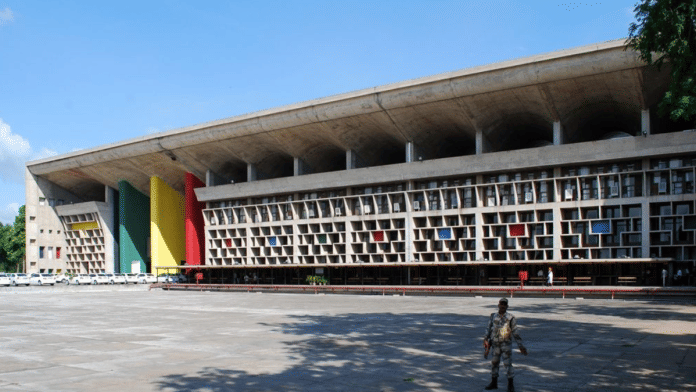Gurugram: The Punjab and Haryana High Court has held the right to hearing as “among the most valued in criminal jurisprudence” while allowing Section 223 of the Bharatiya Nagarik Suraksha Sanhita (BNSS) to be applied to case instituted before 1 July, 2024, the date when it came into force.
Section 223 has a procedural protection allowing the trial court to hear an accused before taking cognisance of a complaint against them.
The HC with its direction also overruled orders of a Gurugram special judge in a Prevention of Money Laundering Act (PMLA) case.
“The right of hearing is among the most valued in criminal jurisprudence, rooted in principles of natural justice and Articles 14 and 21 (of the Constitution),” Justice Tribhuvan Dahiya said in his order, adding that it has to be enforced to guarantee fair trial, following the doctrine of beneficial construction. “Interests of justice demand the right be granted.”
While Article 14 guarantees equality before the law and equal protection of the laws, Article 21 protects the right to life and personal liberty.
The petitioner was former Congress MLA Dharam Singh Chhoker’s son Sikander Singh, who was arrested in April 2024 in connection with an Enforcement Case Information Report filed by the Enforcement Directorate (ED) in November 2021 under the PMLA.
The ED laid a prosecution complaint on 27 June, 2024, before a Gurugram additional sessions judge that was registered and referred to the special judge for hearing on 4 July, 2024.
The case was adjourned without arguments several times until 5 December, 2024, when the special judge took cognisance of offences under the PMLA and issued summons to Singh and other accused.
Singh filed an application stating that hearing had not been given to him before cognisance of charges, as mandated under the new BNSS, that replaces the Code of Criminal Procedure (CrPC), and requested the same under Section 223.
The special judge rejected his contention on the grounds that the complaint was presented under the old code, which did not provide for pre-cognisance hearing.
Under the CrPC, any aggrieved person could approach a jurisdictional court and the magistrate concerned could order an inquiry/registration of FIR or take cognisance of charges and initiate a trial.
Challenging the special judge’s directive in the HC, Singh argued that the prosecution complaint was filed prior to BNSS enforcement but judicial mind was applied only after 1 July, 2024. The additional sessions judge merely performed an administrative function of forwarding the complaint to the special judge on 4 July. Thus, BNSS provisions should operate retrospectively in a benign manner, he posited.
Arguing on behalf of Singh, senior advocate Vikram Chaudhri cited a Supreme Court order of May 2025 (Kushal Kumar Agarwal vs ED). In this matter too, an ECIR was filed in 2014 but the judge took cognisance of charges in November 2024. The Supreme Court, thus, directed the trial court to hear the accused under Section 223 of the BNSS.
Conversely, ED special counsel Zoheb Hussain asserted that “the point of time in filing the complaint is crucial and that the BNSS does not go back to pending cases”. He argued that the prosecution complaint was filed before 1 July, 2024, and thus “inquiry” had already commenced.
Justice Dahiya, in a 12-page order, analysed the timeline and legalities in the matter and turned down the ED’s argument, ordering retrospective implementation of the BNSS provision.
He held that just filing of a prosecution complaint prior to the BNSS becoming operational on 1 July, 2024, did not deprive the accused from availing the procedural protection under Section 223 of the new code.
His order states that even under the CrPC, inquiry starts once a magistrate examines the complaint or orders investigation, not upon receipt or administrative forwarding.
“Filing/presentation of a complaint, or its registration for onward transmission to the competent court, would not entail application of judicial mind (or judicial inquiry),” the judge noted, saying that the additional sessions judge had only performed administrative work on 27 June, since PMLA offences can be tried only by the special judge.
The court emphasised that cognisance in the case was taken on 5 December, 2024—after BNSS enforcement—thus entitling Singh to a hearing under Section 223, which mirrors Section 200 of CrPC but adds a mandatory pre-cognisance hearing for the accused.
Invoking the “rule of beneficial construction”, the judge drew analogy with the Supreme Court order in T. Barai v. Henry AH Hoe (1983), whereby laws minimising punishment were retrospectively invoked.
The HC also directed the Gurugram special judge to pass a new order after hearing Singh.
(Edited by Nida Fatima Siddiqui)
Also Read: It’s time for the Supreme Court of India to show that it is truly supreme






